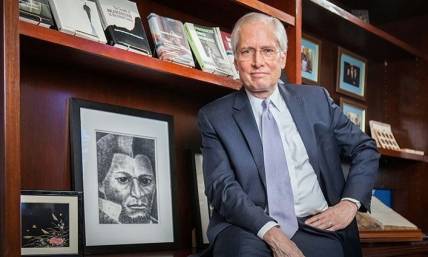Jeremy Travis, NYU Wagner Alumnus, Named 2024 National Academy of Public Administration Fellow

Jeremy Travis, a 1977 graduate of NYU Wagner and a prominent figure in justice reform, has been selected as a Fellow in the 2024 Class of the National Academy of Public Administration. Travis, currently a senior fellow at Columbia University’s Justice Lab, joins an esteemed group of 42 new Fellows recognized for their significant contributions to public administration.
The National Academy of Public Administration’s annual selection is a rigorous process that considers the career achievements and leadership of professionals dedicated to public service. As an Academy Fellow, Travis will collaborate with others to address some of the most pressing issues in governance and policy.
Travis’s career spans over four decades of service in criminal justice, education, philanthropy, and government. He has held influential positions, including President of John Jay College of Criminal Justice and Executive Vice President of Criminal Justice at Arnold Ventures. At Arnold Ventures, he spearheaded initiatives to reform policing, pretrial detention, and public defense, with a strong focus on advancing racial equity.
In 2018, Travis co-founded the Square One Project, a groundbreaking effort to reimagine justice in America. His commitment to innovative justice reform is further showcased in the book Parsimony and Other Radical Ideas About Justice, which he co-edited. The publication has been praised for its forward-thinking approach to transforming the justice system.
“Becoming an Academy Fellow is a tremendous honor,” said Travis. “It is an opportunity to engage with like-minded professionals who are dedicated to improving governance and public service. My experience at Wagner laid the foundation for this journey, as it taught me to see policy as a vital tool for social change.”
Travis’s induction as an Academy Fellow not only highlights his enduring impact on the field of public administration but also strengthens his commitment to justice reform and policy advocacy. His dedication to these causes continues to shape public discourse and inspire systemic change.